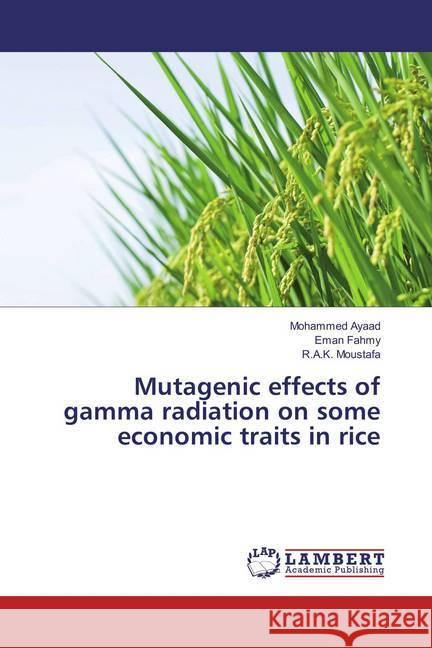Mutagenic effects of gamma radiation on some economic traits in rice » książka
Mutagenic effects of gamma radiation on some economic traits in rice
ISBN-13: 9786134918510 / Angielski / Miękka / 2018 / 112 str.
Mutagenic effects of gamma radiation on some economic traits in rice
ISBN-13: 9786134918510 / Angielski / Miękka / 2018 / 112 str.
(netto: 213,07 VAT: 5%)
Najniższa cena z 30 dni: 223,72
ok. 10-14 dni roboczych
Bez gwarancji dostawy przed świętami
Darmowa dostawa!
Rice is staple food of more than 60 % of the world's population, especially in developing countries. It plays a significant role in the strategy to overcome food shortage and improvement of self-sufficiency for local consumption and export in Egypt, where water scarcity and drought are imminent threat to food security. To fill the gap between the production and consumption because of the increasing of human population from 6.8 to 9 billion people by 2050, we need to improve rice yield at least 40% than the production quantity now worldwide using different breeding methodology. During the last decade, induced mutations have also been gaining increasing importance in plant molecular biology as a tool to identify and isolate genes and to study their structure and function. Knowledge of genes controlling important agronomic and quality traits are critical for plant breeders to develop proper strategies and efficiently implement breeding programs. Therefore, induced mutations can contribute further to increasing global food production both directly and indirectly by increasing yield potential and stability.











